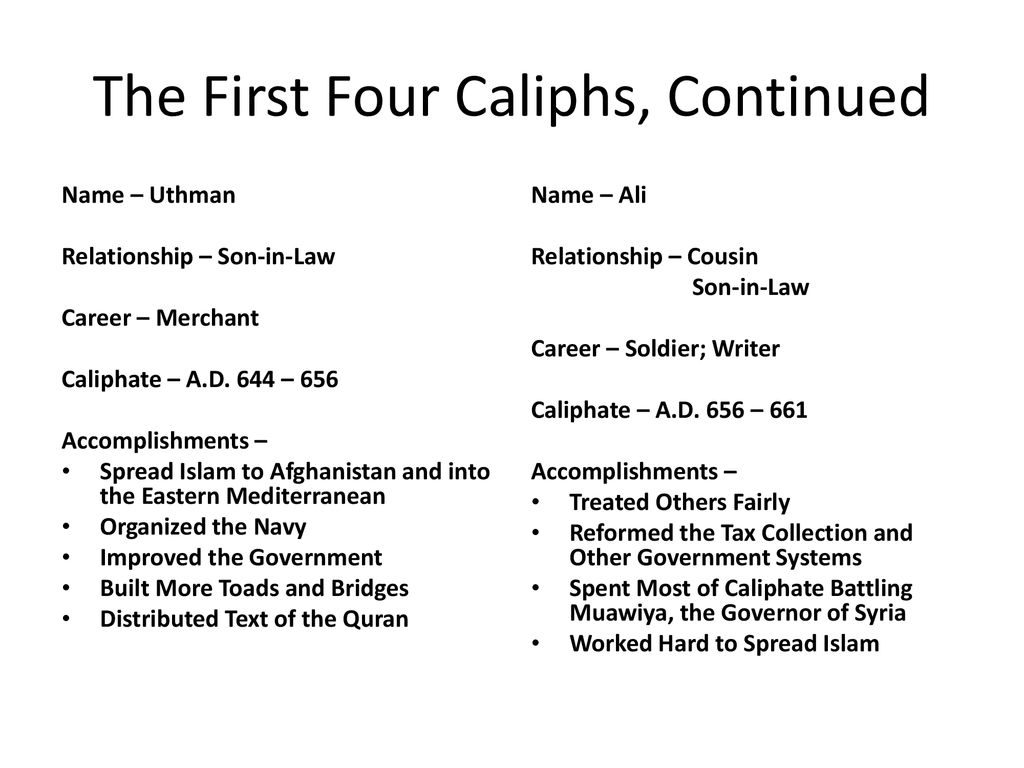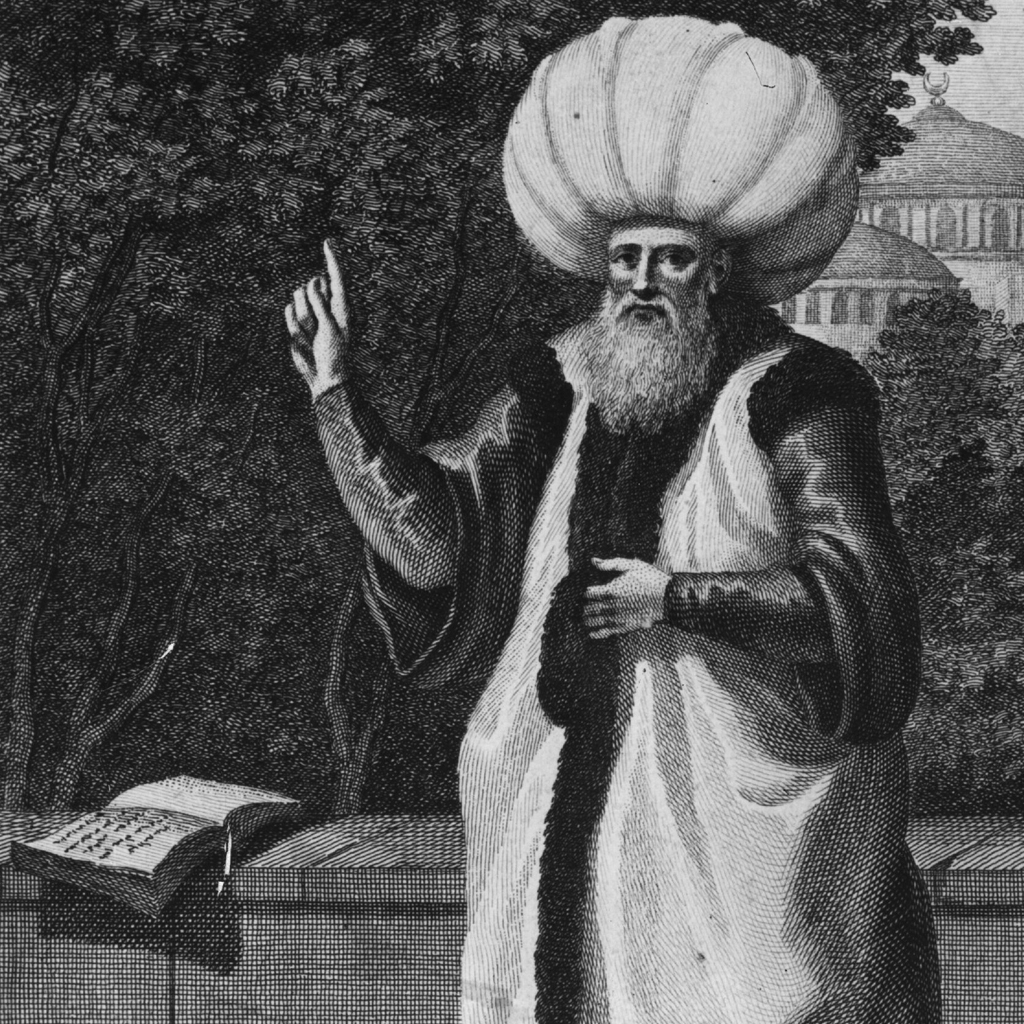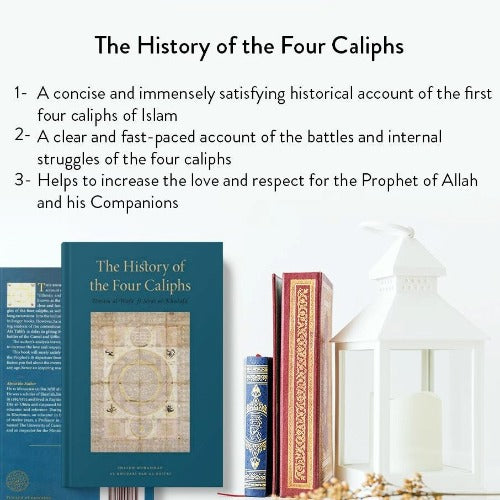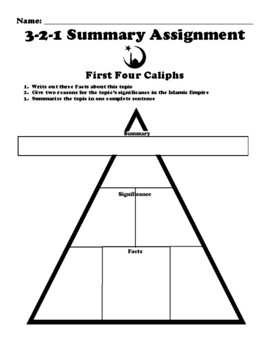The first four caliphs of Islam, also known as the Rashidun or "Rightly Guided" caliphs, were instrumental figures in the early history and development of the religion. These caliphs, or successors to the prophet Muhammad, played a crucial role in spreading and organizing the teachings of Islam, and their legacies continue to be revered by Muslims around the world today.
The first caliph was Abu Bakr, who was chosen by the Muslim community after the death of Muhammad to lead them in prayer and guide them in the path of Islam. He was instrumental in preserving the unity of the Muslim community, and worked to establish a system of governance based on the principles of the Quran. Abu Bakr was also instrumental in the successful military campaigns that helped to spread Islam beyond the Arabian Peninsula.
The second caliph was Umar, who followed Abu Bakr as caliph and continued to expand the territory of the Islamic state through successful military campaigns. He also implemented a number of important reforms, including the establishment of a formal system of taxation and the introduction of a standardized system of weights and measures. Umar is also remembered for his fair and just rule, and his efforts to promote equality and justice for all Muslims.
The third caliph was Uthman, who faced significant challenges during his time as caliph, including internal conflicts and external threats from rival empires. Despite these challenges, he worked to expand the territory of the Islamic state and to establish a system of governance based on the principles of the Quran. Uthman is also remembered for his efforts to standardize the text of the Quran, which helped to ensure the preservation of the holy book for future generations.
The fourth caliph was Ali, who was also faced with numerous challenges during his time as caliph, including internal conflicts and external threats from rival empires. Despite these challenges, he worked to maintain the unity of the Muslim community and to defend the Islamic state against external threats. Ali is also remembered for his emphasis on justice and equality, and his efforts to promote the teachings of Islam throughout the region.
Overall, the first four caliphs of Islam played a crucial role in the early history and development of the religion, and their legacies continue to be revered by Muslims around the world today. They worked to spread and organize the teachings of Islam, and to establish a system of governance based on the principles of the Quran. Their leadership and guidance helped to lay the foundations for the continued growth and success of Islam, and they continue to be an inspiration to Muslims today.







